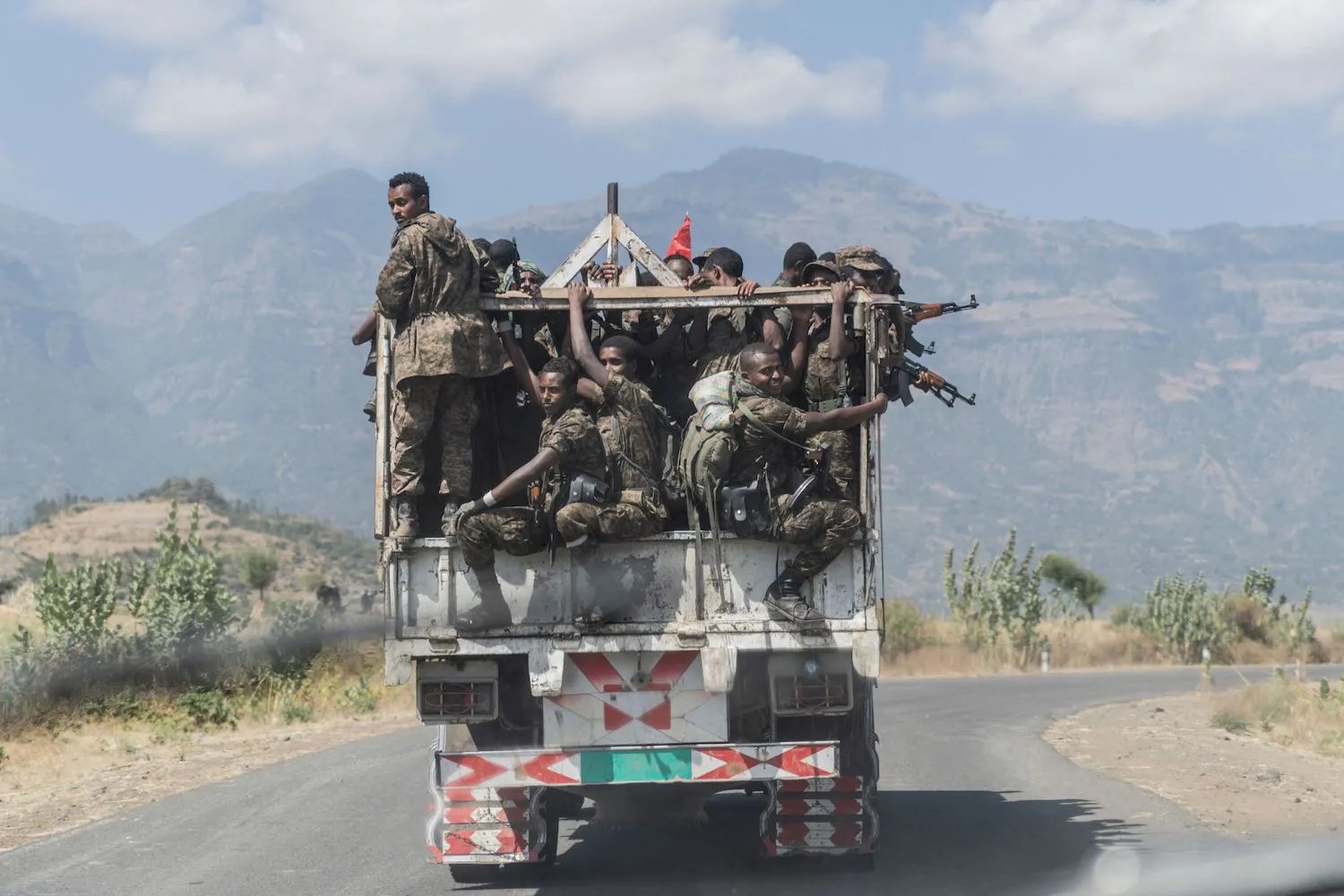Ethiopia rejects UN report on human rights violations in Tigray
The report has been criticized for its political bias by Ethiopian officials, claiming that it disregards the atrocities committed by the TPLF.
-

Ethiopia, Eritrea troops "attack TPLF" (AFP via Getty Images)
Ethiopia rejected a UN report on Tuesday in which Experts from the Commission of Human Rights detailed that Addis Ababa has been involved in possible ongoing crimes against humanity in its war-torn Tigray region.
The report mentioned it found evidence of widespread violations by all sides since the conflict began in the Tigray region two years ago.
Prime Minister Abiy Ahmed, a Nobel laureate, and his allies were held accountable for "intentionally causing great suffering" by denying aid to Tigray, including using starvation as a weapon.
One of the commission's three independent rights experts and its chair, Kaari Betty Murungi, said the withholding of food, medicine, and basic services was "having a devastating impact on the civilian population" of six million.
"We have reasonable grounds to believe it amounts to a crime against humanity," she said in the report. "We also have reasonable grounds to believe that the Federal Government is using starvation as a method of warfare."
Ethiopia's permanent representative to the UN in Geneva, Zenebe Kebede, said the commission was "politically motivated" and their conclusions were "self-contradictory and biased."
"There is not any single evidence that shows the government of Ethiopia used humanitarian aid as an instrument of war," the envoy told sources, describing the report as "a mockery" and "rubbish".
"Therefore we have no other option but to reject this report."
Kebede added that investigators disregarded the atrocities by the Tigray People's Liberation Front (TPLF), which ruled Ethiopia for decades prior to Abiy's coming to power in 2018 and who are generally known as a "terrorist entity".
Read more: New airstrike targets Ethiopia's Tigray
After a short five-month pause, the conflict between Ethiopian forces and its allies against the TPLF reignited in August despite many efforts to resolve the two-year-long war.
Authorities in Tigray announced this month they were ready to participate in talks mediated by the African Union (AU), removing an obstacle to negotiations with Abiy's government.
But fighting has only escalated in the weeks since, with airstrikes pounding Tigray and Ethiopia's ally Eritrea crossing the border to join the fight against the rebels.
The TPLF accused Eritrean forces of instigating a "full-scale offensive" across northern Ethiopia, where heavy combat has been underway in the last few weeks.
Verification of the claims has not been made possible as northern Ethiopia and Tigray have been under a communications blackout for more than a year.
Mike Hammer, the US special envoy to the region who just returned from 11 days in Ethiopia, said Washington "had been tracking Eritrean troop movements across the border."
"They're extremely concerning and we condemn it," Hammer told reporters on Tuesday.
"The presence of Eritrean troops in Ethiopia only serves to complicate matters, and inflame an already tragic situation."
Eritrean troops sided wit the Ethiopian forces in the early stages of the war when Abiy sent soldiers into Tigray to unseat the TPLF, accusing the group of attacking federal army camps.
Eritrean authorities issued a general call for mobilization last week.
Read more: Ethiopian army working on clearing TPLF from Amhara, Afar

 3 Min Read
3 Min Read








